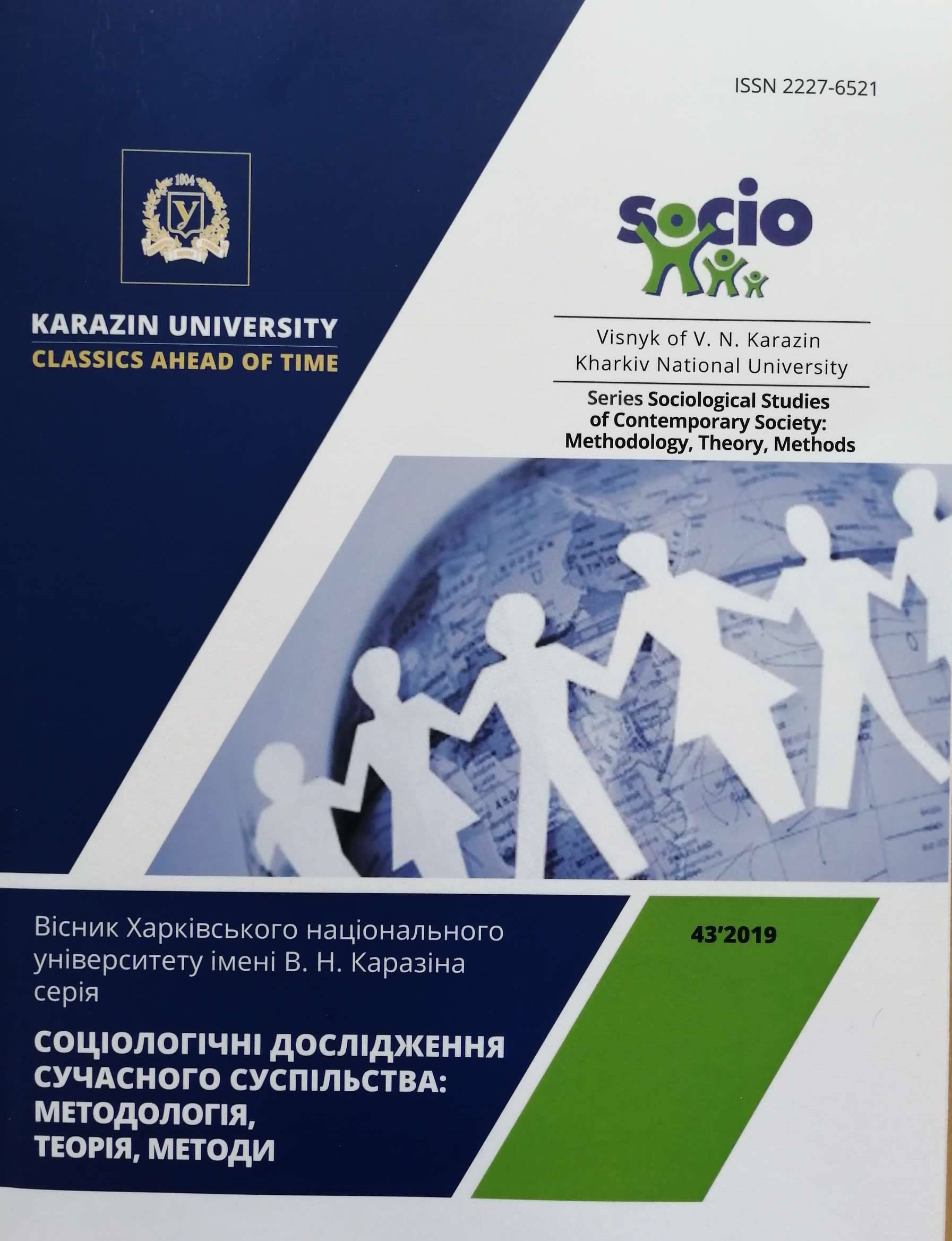The Heuristic Potential of the Sociological Theory by Giovanni Arrighi in the Study of the Static Aspect of Global (neo)colonial Systems of Inequality
Abstract
The article deals with the heuristic potential of the sociological theory by Giovanni Arrighi in the study of the static aspect of the formation and maintenance of global inequality systems. To achieve the goal ー to analyze the applicability of this theory to the study the mentioned topic ー the features and prerequisites for the formation of G. Arrighi’s theory are analyzed. The conceptualization of the problems of neocolonialism and global inequality is being carried out, an attempt to look at them through the prism of Giovanni Arrighi’s theory is made. The researcher’s work is regarded as macro-sociological and historical-sociological, which immediately puts it in a certain context. In addition, the author’s Marxist background and its influence on the theory and methodology of the researcher are analyzed. The article considers the central categories of the author and his relationship with other researchers (K. Marx, V. Lenin, A. Gramsci, H. Arendt, D. Harvey and F. Braudel). An attempt is made to evaluate the continuity and novelty of G. Arrighi’s ideas. The article analyzes the concept of capitalist imperialism by Giovanni Arrigi, which he considers as the main characteristic of the modern world order. The process of capitalism expansion is being studied through the lens of concepts borrowed from David Harvey: spatial-temporal fix and accumulation by disposition. The article examines the method of legitimizing capitalist imperialism at the inter- and supranational level. It also studies how G. Arrighi works with the concept of hegemony and extrapolates it from the group level on the supranational one. An attempt to apply the static aspect of the concept to explain the nature and functions of global systems of inequality is made.
Downloads
References
Arrighi G. (interviewed by David Harvey) The Winding Paths of Capital. New Left Review. 2009. II(61).
Маркс К., Энгельс Ф. Из ранних произведений / К. Маркс // Экономическо-философские рукописи 1844 года. Москва : Государственное издательство политической литературы, 1956. С. 519- 642.
Ленин В.И. Империализм как высшая стадия капитализма. Москва : Издательство политической литературы, 1978. 135 с.
Арриги Дж. Утрата гегемонии II. Прогнозис. 2005. № 3. С. 6-36.
Арриги Дж. Утрата гегемонии I. Прогнозис. 2005. № 2. С. 5-60.
Грамши А. Избранные произведения. Т. 3 Тюремные тетради. Гегемония (гражданское общество) и разделение властей. Москва: Издательство политической литературы, 1959. С. 214.
Harvey D. New Imperialism. New York: Oxford University Press, 2003. 263 p.
Arrighi G. Spatial and Other ‘Fixes’ of Historical Capitalism. Journal of World-Systems Research. 2004. X. 2.
Арриги Дж. Неравенство в доходах на мировом рынке и будущее социализма. Скепсис. URL: https://scepsis.net/library/id_2293.html
Хардт М., Негри A. Империя / пер. с англ., под ред. Г. В. Каменской, М. С. Фетисова. М.: Праксис, 2004. 440 с.
Хомски Н. Создавая будущее: оккупации, вторжения, имперское мышление и стабильность. Развязать войну, чтобы принести «мир» / пер. с англ. Москва : Альпина Нон-Фикшн. 2015. 316 с.





